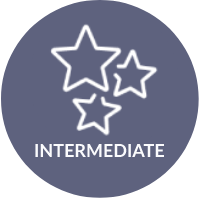Solutions Circles are located in the Exhibit Hall and are designed for small-group collaboration. Each session is limited to 30 participants on a first-come, first-served basis, so arrive early to secure your spot!
Exhibit Hall: Solutions Circle
Biopharmaceuticals (includes Biologics and Drugs)
Solution Circle (D): The Impact of Regulatory Control Measures on Access to Opioid Analgesics used for Pain Management in Botswana
Thursday, September 19, 2024
10:35 AM - 11:05 AM PDT
Location/Room: Exhibit Hall: Solutions Circles Area (D)

Tshetsana Senau
Research Officer- Clinical Trials and Research
Botswana Medicines Regulatory Authority, Botswana
Facilitator(s)
Description: The availability of controlled drugs in healthcare is of major concern as there is a need to ensure that there is adequate access for both medical and scientific purposes, as well as limiting diversion at the same time. Measures have been put in place through legislations used at international level and adhered to by most countries. The United Nations General Assembly Special Session in 2016 on the World Drug Problem has embarked on strengthening international regulations to counter the world drug problem under close collaboration with world governments. In the context of Botswana, such regulations have been adapted and are implemented in accordance with the medicine legislations. Although an essential regulatory step to avoid diversion of these substances which are liable for abuse, there are some effects of these steps limiting the availability of controlled substances, in this case opioid analgesics for pain management. This could be due to limited financial resources; lack of registration of generics for market authorisation in case there is a problem sourcing registered alternatives; lack of training and competent personnel and health professionals regarding the rational prescribing of opioid analgesics for pain management; and lastly, the stringent regulatory framework for the prescription of controlled substances for medical purposes. Currently, for example, the import/ export of these drugs is governed by consumption rates calculated and analysed by the government. Could this also be a limiting step in the availability of opioid analgesics to those who need them?
This study aims to analyse the impact a stringent regulatory framework has on the availability of opioid analgesics for use in pain management including palliative care in Botswana. It aims to also determine the country’s capacity to monitor and ensure the supply of opioid analgesics prevents their misuse and abuse.
This study aims to analyse the impact a stringent regulatory framework has on the availability of opioid analgesics for use in pain management including palliative care in Botswana. It aims to also determine the country’s capacity to monitor and ensure the supply of opioid analgesics prevents their misuse and abuse.
Learning Objectives:
- Have knowledge on the international regulatory frameworks in place which facilitate access to essential drugs and to opioid analgesics.
- Understand the impact stringent regulatory controls, governed at an international level have on the supply chain of controlled substances. As well as understand the impact regulatory frameworks in place have on prescribing and dispensing patterns.
- To be able to give input on the effectiveness on the regulatory frameworks in place on the control of the misuse and abuse of opioid analgesics.


